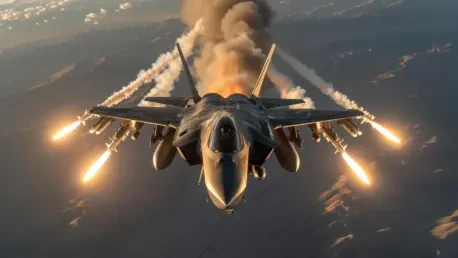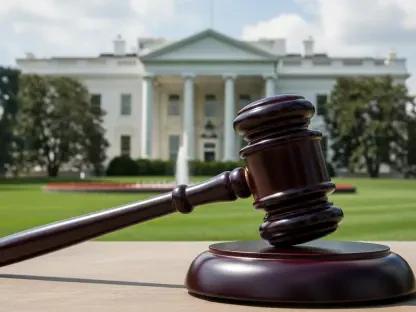Massive public disapproval has emerged following President Trump’s decision to carry out airstrikes on Iranian nuclear sites, as revealed by a recent CNN/SSRS poll. The survey was conducted over a two-day period immediately after the military actions, exposing broader discontent among Americans about the strategy taken by the president. A distinct majority, 56 percent, have expressed disapproval of the airstrikes, reflecting a nation sharply divided on the issue. This division is primarily driven by partisan loyalty, revealing a deep schism in American political alignment. Among Republicans, a substantial 82 percent stand in support of the decision, while an overwhelming 88 percent of Democrats have voiced strong opposition. Within the independent voter base, opinion sways more toward disapproval, with 60 percent disapproving of the president’s actions. This poll serves as a decisive barometer that gauges the political atmosphere, highlighting striking polarization concerning military interventions.
Partisan Divides and Trust in Leadership
Partisan alliances play a key role in shaping perspectives on national security measures, further fostering entrenched divisions. While Republican respondents exhibit considerably high trust levels, their Democratic counterparts express stark skepticism. More than half of the American public, regardless of political affiliation, exhibits minimal trust in President Trump’s capacity to make prudent decisions about deploying military force in Iran. This sentiment is sharply polarized, with Republicans maintaining support and trust in Trump’s judgment. Specifically, 51 percent express a “great deal” of confidence in his capacity to manage international conflicts. Conversely, 71 percent of Democrats express considerable skepticism about Trump’s decision-making regarding Iran. Independent voters appear closer to Democrats on this issue, showcasing the partisan chasm. The resultant tension amplifies the broader dialogue concerning confidence in presidential authority and judgment in dealing with complex geopolitical challenges.
Perceptions of Threat and Political Polarization
The airstrikes not only stirred domestic disagreements but also accentuated variations in the perception of national security threats. A close examination of the poll’s findings reveals distinct partisan biases in how threats, particularly from Iran, are perceived subsequent to the airstrikes. Before the ceasefire announcement, the poll highlighted that 58 percent of respondents perceived Iran as a heightened threat due to the U.S.’s military engagement. Among Republicans, the notion that Iran poses a greater threat post-strikes gains traction, corroborating their support for military action. In contrast, Democrats exhibit skepticism about the strategic efficacy of the strikes in curbing potential threats, reflecting their pronounced opposition. This division underscores the nuanced political fabric governing military and foreign policy opinions within the U.S., marking a significant arena of public debate.
Broader Implications and Future Considerations
Partisan affiliations significantly influence views on national security measures, deepening existing divisions. While Republicans generally display high trust in such protocols, Democrats often exhibit marked skepticism. Across the American populace, irrespective of party lines, there is a noticeable lack of trust in President Trump’s ability to make sound decisions about using military force in Iran. This divide is particularly stark, as Republicans tend to support and have faith in Trump’s judgment. For instance, 51 percent of Republicans have a “great deal” of confidence in his ability to handle international conflicts effectively. On the flip side, 71 percent of Democrats remain dubious about Trump’s decision-making when it comes to Iran. Independents seem to lean more toward the Democratic perspective, highlighting the partisan divide. This discord accentuates a wider discussion on trust in presidential authority and competence in managing intricate geopolitical issues, underscoring the tension within national discourse.









